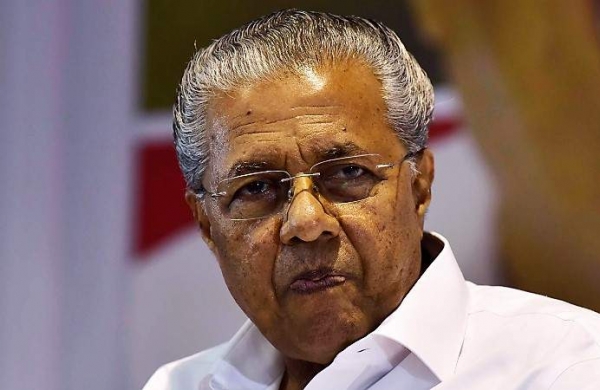The real test may be lying in wait in the next six months or so.
The success story of Kerala’s fight against coronavirus continues unabated. But the real test may be lying in wait for Kerala in the next six months or so. On Friday, a hundred days after its first reported Covid-19 case, Kerala had only one new infection, with 10 leaving hospitals after full recovery. It was a medical student at a university in Wuhan—the Chinese city said to be the epicentre of the pandemic—hailing from Thrissur in central Kerala who was officially detected as the first coronavirus affected in the whole country. That was on 30 January. Hundred days later, in May first week, Kerala has traversed a long way in tackling the deadly virus, turning to be a model state not only for the country, but also the world. As of Friday, of the total 503 recorded cases, Kerala has only 16 active patients. The rest, about 97%, has recovered from the illness, with just four succumbing to it so far. The number of infections in the state today is 30 compared to 300 a month ago. In terms of hotspots, the state has reduced them to 33 from over 100 few weeks ago.
On Friday, the national statistics stood at 59,662 confirmed patients of which 17,857 patients have recovered. The country’s death toll stood at 1,981. The sole new patient detected in Kerala on Friday is in Ernakulam district, one of the green districts in the state. The patient has a travel history to Chennai in Tamil Nadu, now one of the most affected states in the country, and is said to be suffering from renal ailments. “Today (Friday) is the 100th day since the first case in India was registered in Kerala’s Thrissur. In the first week of March, the second wave started in Kerala (with the arrival of returnees from the Gulf region). Two months later, we can say we have flattened the curve,” said a beaming Pinarayi Vijayan, Chief Minister, at his daily press briefing. However, he said the state should not drop its guard as it risks a third wave of rising infections in the return of thousands of NRI Malayalis bound for home since Thursday. “We would see that a third wave does not occur. We should allow no room for complacency. Actually, we should be more careful now than ever before,” Vijayan said. As of now, the state has 20,157 people under observation in 347 hospitals. So far, 35,856 samples were tested by the state with 35,355 of them were negative for Covid-19, the CM added.
The Central government is likely to operate 64 flights from 7 to 13 May to bring home around 14,800 Indian nationals, mostly from Kerala, stranded abroad since the corona virus outbreak. These special flights would be operated by Air India and its subsidiary Air India Express to repatriate Indians from 12 countries—the UAE, the UK, the US, Qatar, Saudi Arabia, Singapore, Malaysia, the Philippines, Bangladesh, Bahrain, Kuwait and Oman. Three naval ships would also evacuate Indian from the Maldives and UAE. This evacuation operation named “Vande Bharat” is reminiscent of the evacuation India conducted during the 1990 Kuwait War. The then VP Singh government carried out one of the biggest citizen evacuation ever recorded in history, bringing 1.5lakh stranded Indians back to safety. It lasted for 59 days from 13 August to 11 October 1990, involving a minimum of 500 flights. Unlike the Kuwait days, this time Kerala is witnessing a far more serious crisis. If during Kuwait days, there was hope of returning back to the Gulf region, this time there is hardly any scope for such a thing to happen. For one, the impact of Corona is supposed to linger for months, if not years. Out of over three lakh Gulf returnees expected in Kerala in the next two months, a quarter of them are said to be jobless. Termed as a counter-migration phenomenon, experts point out that this would be a major challenge for Kerala. According to migration expert S. Irudaya Rajan, “Covid-19 has affected the global economy. Though Gulf migrants have faced several crisis in the past, this time it s really serious. The latest setback is going to cost the state dearly.” Rajan is a member of the high-level expert committee appointed by the Left Front government to study the impact of the pandemic on the state economy. “It all depends on how the economies of the West Asian countries are going to recover post-Covid-19,” Rajan has been quoted as saying.
Kerala has been heavily dependent on its remittances from the Gulf. But now there is every chance of it being dried up totally. Coupled with this, is the severe financial crunch the state is going through. The Left government, especially its finance minister T.M. Thomas Isaac, puts all the blame for its economic ills squarely on the Central government. “Demonetisation, GST and the floods affected the state in 2018 and 2019 had a negative impact on the financial sector in the state by and large. Beside, the Centre had cut down the state’s share of approved loan which worsened the situation,” Isaac had said while assessing the impact of Covid-19 on the state economy. However, the state cannot wash its hands from sloppy handling of its finances.
The Opposition has been pointing out the government’s extravagances during hard times. The state is yet to recover from the 2018 devastating floods, with many of the victims yet to get compensation from the government. The Opposition has also raised serious political charges against the government misusing disaster funds for fighting cases of party workers involved in murder cases, a serious charge which the government finds difficult to defend. Moreover, the state is entering the election year with the ruling and Opposition vying with each other to capitalise on the Covid-19 and its fallout.

